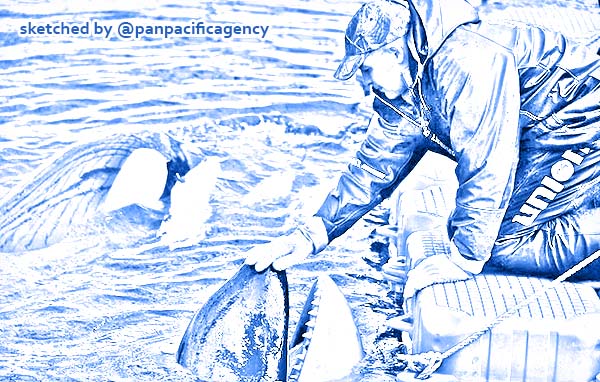Owner says he won’t release whales, orcas held captive in Russia’s Far East

Photo © Yuri Smithyuk/TASS. Sketched by the Pan Pacific Agency.
MOSCOW, May 23, 2019, TASS. The owner of orcas and beluga whales kept in a center in the Russian Far East’s Srednyaya Bay dubbed “a whale prison” has said he is not planning to release them on his own will, reported the TASS.
“Any question regarding their release may be posed only after I’m deprived of the ownership rights, what release are you talking about? These mammals are my property. I have not made any decision on releasing them and I’m not planning to do this,” Director General of the Afalina company, which owns the mammals, Alexei Reshetov said.
On Thursday, the South Sakhalin city court started considering on the merits a lawsuit by a number of animal rights activists demanding that the Russian Federal Agency for Fishery, the Ministry of Agriculture and the Federal Service for Supervision of Natural Resources help release the mammals.
The activists insist that the natural resources watchdog’s failure to act in this situation was illegal, and that it must seize the mammals from commercial companies and release them into the wild. They also ask the court to recognize as illegal a number of decrees of the Ministry of Agriculture and the Federal Agency for Fishery on distributing quotas on catching whales and belugas. At its meeting on April 19, the court removed the Ministry of Agriculture from the list of defendants.
Eleven orcas had been kept for sale to China in the facility in Srednyaya Bay along with 90 beluga whales. However, three beluga whales went missing, and one orca reportedly disappeared. A criminal case has been launched into illegal hunting of these mammals.
In late February, Russian President Vladimir Putin instructed the Ministry of Natural Resources and Environment and the Ministry of Agriculture together with scientific organizations to come up with a solution for the whales. The Russian presidential administration took the whale issue under special control. In mid-May, the authorities in Primorye announced that the mammals could be freed within two months.